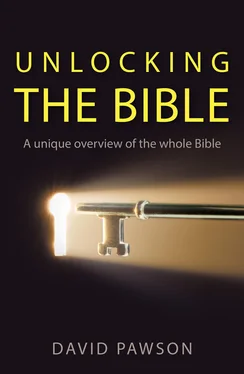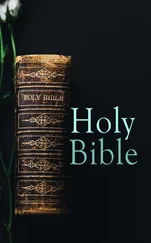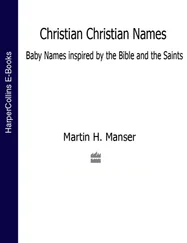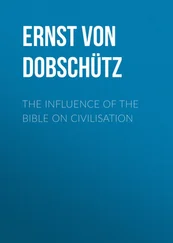Christians and Moses’ law
How, then, should Christians today read the law of Moses?
Particular precepts
We are not under the law of Moses, but under the law of Christ. We need to find out, therefore, whether each Old Testament law is repeated or reinterpreted in the New Testament.
For example, out of the Ten Commandments, only the Fourth concerning the Sabbath is not repeated in the New Testament. And tithes are not enforced in the New Testament either, although we are encouraged to give generously, cheerfully and liberally. Laws about clean and unclean food are abolished.
General principles
We are saved for righteousness not by righteousness. This is an important concept to grasp. The need ‘to do’ is just as common in the New Testament as in the Old, but the motivation is also all-important now. Our righteousness must ‘exceed that of the Pharisees and the scribes’, but now our righteousness is inward as well as outward. Now we have the Spirit to enable us. Thus we are justified by faith, but judged by works.
It is worth noting, too, that Deuteronomy is a warning against syncretism. We can easily incorporate pagan practices into our lives without realizing it. Hallowe’en and Christmas, for instance, were originally both pagan festivals, which the Church sought to ‘make Christian’ when they should have avoided them altogether.
Conclusion
Deuteronomy is a crucial book within Israel’s history, and not just because it was one of the five books of Moses. It reminds people of the past, teaches them how to live in the present, and urges them to look ahead to the future. It reflects Moses’ concern that his people should not go astray. At the same time it states God’s desire that his people, by honouring and respecting him, should be worthy of the land he was giving them.
 A LAND AND A KINGDOM
A LAND AND A KINGDOM
7. Joshua
8. Judges and Ruth
9. 1 & 2 Samuel
10. 1 & 2 Kings
7. 7. Joshua 8. Judges and Ruth 9. 1 & 2 Samuel 10. 1 & 2 Kings
JOSHUA

Introduction
A schoolteacher asked a classroom of children: ‘Who knocked down the walls of Jericho?’ There was a long silence before a small boy said, ‘Please sir, I didn’t!’
Later that day in the staffroom, the teacher recounted the incident to the headmaster. ‘Do you know what happened in my classroom today? I asked who knocked down the walls of Jericho and that boy Smith said, “Please sir, I didn’t.”’
The headmaster replied, ‘Well, I’ve known Smith some years and I know his family – they’re a good family. If he says he didn’t do it, I’m sure he didn’t.’
The headmaster later reported the boy’s answer to a visiting school inspector, whose response was: ‘It’s probably too late to find out who did it; get them repaired and send the bill to us.’
The joke, of course, is that everybody should know who knocked down the walls of Jericho. It is one of the better known stories in the Bible. If they do not know the story from the Bible, then they have heard the Negro spiritual song ‘Joshua fit the battle of Jericho’. But this is the only part of the book many people do know. Joshua is not a well known book and a knowledge of the battle does not mean that everyone believes it actually happened. For even this story raises questions: How were the walls knocked down? Were they, in fact, knocked down at all?
It is clear that there are a number of preliminary questions for us to consider as we look at the book of Joshua. First of all we need to ask what sort of a book it is and how we should read the incredible stories it contains. We will then go on to look at the content and structure of the book, and how Christians can read it for maximum benefit.
What kind of a book is Joshua?
Joshua is the sixth book in the Old Testament. In our English Bible it is the book after Deuteronomy, with an apparently logical flow from the death of Moses at the end of Deuteronomy to the commissioning of Moses’ successor Joshua at the start of the next book. To the Jews, however, the significance of the book’s position is quite different. The end of Deuteronomy marks the end of the Torah, the law of Moses. These five books are read annually in the synagogue, with Genesis 1:1 beginning the New Year and Deuteronomy 34:12 being read at its end. Each of the five books is named after its first words, since these would be the words seen at the start of the scroll when the books came to be selected for reading. Joshua is the first book to be known by the name of its author.
Joshua is also a completely new type of literature. The first five books of the Bible set out the basic constitution of the people of Israel and are foundational to all that follows. By contrast, there is not a single law in Joshua, or in the books that follow. In Joshua we begin to see how the law is worked out in practice.
Joshua tends to be regarded as a history book because it comes in what is regarded as the history section of the English Bible. But it is more than just a history book. As we saw in the Overview of the Old Testament (Chapter 1), the Jews divide the Old Testament into three sections, rather like a library with books collected under three categories (Old Testament). The first five are the ‘books of the law’, also called the Torah or the Pentateuch. The ‘books of the prophets’ come next. Joshua is the first book of the ‘former prophets’, followed by Judges, 1 and 2 Samuel, and 1 and 2 Kings. The books of Isaiah to Malachi comprise the ‘latter prophets’, with a few exceptions. The third section is ‘the writings’, which includes Psalms, Job, Proverbs, Ruth, Song of Songs, Ecclesiastes, Lamentations, Esther, Daniel, Ezra, Nehemiah, and 1 and 2 Chronicles. So two books which are in the English Bible as prophets – Daniel and Lamentations – are part of ‘the writings’ in the Jewish Old Testament arrangement. Chronicles is the last book of the writings, although the English Bible includes it in the history section.
Joshua’s inclusion as a book of prophecy under the Jewish arrangement surprises many, for most of it is in narrative form and reads more like straight history than the poetic prophecy of later books. There are, however, a number of reasons why we should concur with this ‘prophecy’ tag.
First, it is not widely known that Joshua was a prophet. It is true that he is better known as a military commander, but he was a prophet just like Moses in that he heard from God and spoke for God. Indeed, the last chapter of the book records Joshua, in the first person singular, delivering God’s message to the people.
Second, biblical history is in any case a special kind of history. There are two principles which have to be followed when writing any history:
 Selection – it is impossible to include everything, even when covering a short period of time. The Bible’s history is highly selective, focusing largely on one nation and only on certain events within that nation’s life.
Selection – it is impossible to include everything, even when covering a short period of time. The Bible’s history is highly selective, focusing largely on one nation and only on certain events within that nation’s life.
 Connection – a good historian takes seemingly disparate events and shows how they link together, so that a common theme is developed.
Connection – a good historian takes seemingly disparate events and shows how they link together, so that a common theme is developed.
Using these two principles, we can see why the history in Joshua and the other ‘history’ books in the Bible is in fact prophetic. The author selects the events which are significant to God or are explained by God’s activity. Only a prophet can write this kind of history, for only a prophet has insight into what to include and why. Seeing the book as prophecy reminds us that the real hero of the book is not Joshua but God (and this applies to any book of the Bible). We see God’s activity in this world, what he says and what he does. Therefore, whilst it is genuine history, in that it describes what happened, we must see it as prophetic history, for it declares the reality of God and his work in the world.
Читать дальше

 A LAND AND A KINGDOM
A LAND AND A KINGDOM Selection – it is impossible to include everything, even when covering a short period of time. The Bible’s history is highly selective, focusing largely on one nation and only on certain events within that nation’s life.
Selection – it is impossible to include everything, even when covering a short period of time. The Bible’s history is highly selective, focusing largely on one nation and only on certain events within that nation’s life.









